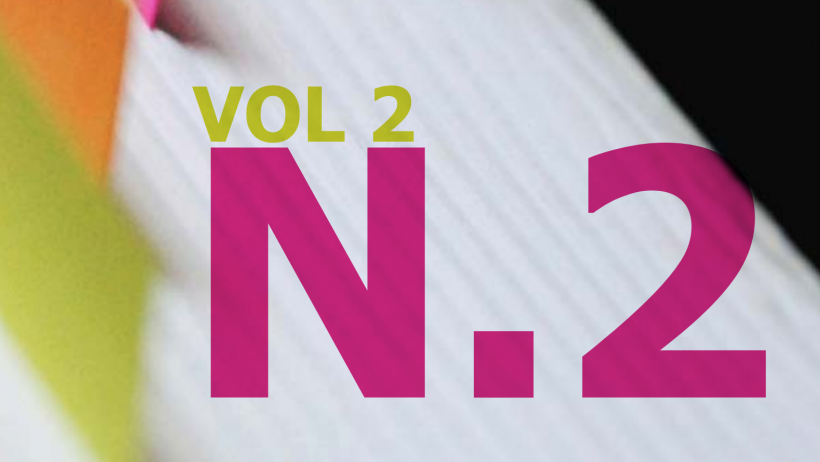Authors
- PhD. Professora Marilene Santana dos Santos Garcia
Centro Universitário Internacional UNINTER | PPGENT, Curitiba, Brasil
marilene.g@uninter.com
ORCID: https://orcid.org/0000-0002-9397-534 - Pesquisadora Helbe Heliamara Herarth
Centro Universitário Internacional UNINTER | PPGENT, Curitiba, Brasil
helbehherarth@gmail.com
ORCID: https://orcid.org/0000-0001-8884-3990 - Pesquisador Darlan Rodrigues Martins
Centro Universitário Internacional UNINTER | PPGENT, Curitiba, Brasil
darlan.m@uninter.com
ORCID: https://orcid.org/0000-0002-5169-7325 - Pesquisadora Ana Cláudiacuri Maciel
Centro Universitário Internacional UNINTER | PPGENT, Curitiba, Brasil
maciel1.ana@outlook.com
ORCID: https://orcid.org/0000-0001-7706-9864
DOI:
https://dx.doi.org/10.12795/IROCAMM
Abstract
In this article, we highlight aspects of an investigation that seeks to build an inclusive design, which can support the development of an application prototype aimed at improving the writing and reading levels of functional illiterates – from the rudimentary level. This study is the result of the actions carried out in the Study Group “Hybrid Education, methodologies and objects of digital learning in mobility environments”, of the Master in Education and New Technologies – of a Brazilian private institution of higher education. The idea is to elaborate inclusion design assumptions that can direct the creation of an application with functions that cover the profile and condition of functional illiterates, who have lack of reading skills, have low self-esteem to face the challenge of learning, and present operational deficiencies for the use of mobile devices and their applications. The methodology applied in this study is based on the survey of personal narratives of this target audience, which reveals verbal communication needs, which can be planned in interactive ways in the application design. The authors who support this study have worked with gamification concepts, instructional design, cognition, learning mediated by mobile interfaces, among others, such as Concepción (2016), Santana et al. (2012) and Garcia (2016).
Full Text:
References
- AKHRAS, FÁBIO N. A inclusão social como um projeto científico: uma ontologia. In Revista Ibict. Brasília, DF,
v. 4 n. 2, p. 25-37, jan./jun. 2011. Disponível em: https://revista.ibict.br/inclusao/article/view/1654
Acesso em: 30/06/2019. - CONCEIÇÃO, L. S. E. Baixo letramento e novas mídias digitais: A experiência de indivíduos com baixo letramento
em redes sociais e comunicadores instantâneos. Dissertação de Mestrado, PUC-RJ-RJ, 2016. - GARCIA MADRUGA, J. A & MARTIN CORDERO, J. I. Aprendizaje, Compreension y Retención de textos. Madrid, UNED,
1987. - GARCIA, MARILENE S. S (2016). Design de Aplicativos Mobile para a Aprendizagem de Língua. EaD Em FOCO, 6
(1), 2016. doi: https://dx.doi.org/10.18264/eadf.v6i1.371. - INAF. Instituto Nacional de Alfabetismo Funcional. Indicador de Alfabetismo Funcional, 2018. Disponível em: https://www.ipm.org.br/relatorios. Acesso em: 01 maio 2019.
- MAUCH, W; et Al. Terceiro relatório global sobre aprendizagem e educação de adultos. Brasília: UNESCO,
2016. Disponível em: https://unesdoc.unesco.org/images/0024/002470/247056por.pdf. Acesso em: 18/05/2018. - PIAGET, J. O diálogo com a criança e o desenvolvimento do raciocínio. São Paulo: Scipione, 1997.
- SANTANA, CHRISTIANO S. F. et Al. Aplicando traços de acessibilidade e usabilidade web móvel. In Revista GEINTEC. Vol. 2, número 5, p. 445 – 464, 2012. Disponível em: https://ww.w.revistageintec.net/index.php/
revista/article/viewFile/68/140. Acesso em: 30/06/2019. - STERNBERG, ROBERT J. Psicologia Cognitiva. Porto Alegre: Artes Médicas Sul, 2000.

